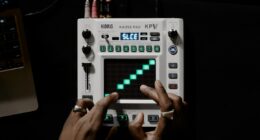Share this @internewscast.com
Brent Pieper, the Vice President of Advancement at the University of Louisville, faced arrest in Lexington on Friday, February 23, charged with DUI and related offenses.
Brent Pieper, the Vice President of Advancement at the University of Louisville, faced legal trouble after being arrested in Lexington on February 23.
The charges against him include operating a motor vehicle under the influence of alcohol, fleeing or evading police, and resisting arrest.
Pieper’s arrest citation highlighted his aggressive behavior and refusal to allow others to pass his vehicle, creating a disruptive situation.
The incident has drawn attention to the university’s leadership, which is facing legal issues and impacting its reputation.
Brent Pieper DUI Led To Arrest
Brent Pieper, the Vice President of Advancement at the University of Louisville, faced charges following his arrest in Lexington on February 23.
The charges included operating a motor vehicle under the influence of alcohol, fleeing or evading police, and resisting arrest.
The arrest citation described Pieper’s disruptive behavior, involving obscenities, aggression towards the public, and refusal to allow others to pass his vehicle.
The incident unfolded when Pieper, seated in a black Acura, drove off upon the arrival of an officer, eventually pulling into a driveway.
Subsequently, Pieper fled on foot, evading commands to stop and jumping over fences to escape law enforcement.
Brent Pieper assumed the role of Vice President of University Advancement at the University of Louisville in July 2023.
During his hiring announcement, he was hailed as a “rising leader with a track record of success in campaign planning and execution.”
Before this position, Pieper was the associate vice president of philanthropy at the University of Kentucky.
The University of Louisville responded with a statement acknowledging the alleged incident involving Brent Pieper.
The university spokesperson said they were gathering more information and would respond appropriately.
The arrest has raised concerns about the conduct of a senior university official and the potential impact on the institution’s reputation.
The charges against Pieper, particularly related to alcohol-related offenses and resisting arrest, highlight the need for accountability and appropriate action by the university in response to this incident.
The situation may prompt a reevaluation of the hiring processes and background checks for high-ranking university officials in the future.
Brent Pieper Charges And Mugshot
Brent Pieper, the Vice President of Advancement at the University of Louisville, faced severe charges after being arrested in Lexington on February 23.
The charges included operating a motor vehicle under the influence of alcohol, fleeing or evading police, and resisting arrest.
Police accounts reveal that Pieper was seen yelling obscenities and behaving aggressively towards the public, refusing to let anyone pass his vehicle.
Upon an officer’s arrival, Pieper, seated in a black Acura, fled the scene and subsequently attempted to evade law enforcement on foot, jumping over fences.
During the arrest, Pieper resisted, attempting to break out of handcuffs, and was ultimately taken to the ground by officers.
Law enforcement noted strong indicators of alcohol impairment, including a notable odor, slurred speech, and bloodshot eyes.
Following his Miranda rights being read, Pieper admitted to consuming alcohol at a nearby restaurant before driving. However, he refused both breath and blood tests.
The arrest and subsequent charges have raised concerns about Pieper’s conduct as a senior university official and its potential impact on the University of Louisville’s reputation.
The refusal to undergo alcohol testing may have legal implications, and the resisting arrest charge further complicates the situation.
Additionally, the University of Louisville, where Pieper has been Vice President of Advancement since July 2023, is expected to face scrutiny in handling the aftermath of this incident.
The charges and circumstances surrounding the arrest may prompt a reevaluation of the university’s policies on the conduct of high-ranking officials and the potential consequences of such behavior.



